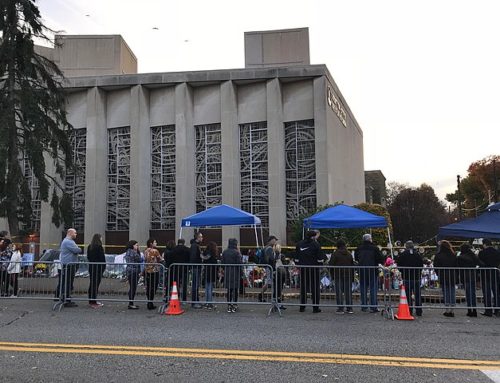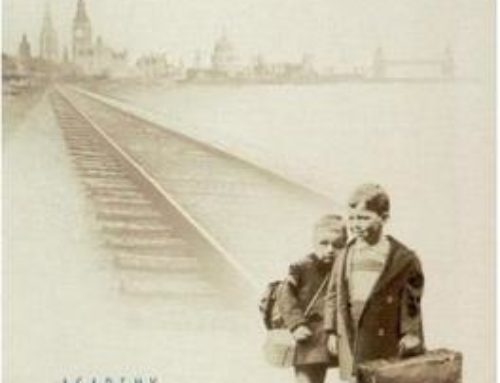I recently returned from Portugal where I met with two important people in the Portuguese Jewish Community. (Jose Carp who headed the Portuguese Jewish Community for 14 years and Hugo Vaz, a Portuguese Jewish historian.
Introduction
Although the Jewish Portuguese Community is small, some 5000- in the entire country, it should expand rapidly because of four developments:
- There is no anti-Semitism in Portugal
- In 2013 Portugal passed legislation providing citizenship to Sephardic Jews who were expelled in 1496. Some 5,000 Jews have to date been granted citizenship based on this law
- The anti-Semitic climate in France, Turkey, Ukraine and Soviet Union have encouraged immigration to Portugal
- Between 20% and 100% of Portuguese population can be genetically tied to their Jewish roots. At the time of Jewish expulsion from Portugal, some 20% of the population was Jewish.
History of Portuguese Jewish Community
Jewish presence in Portugal can be traced back to the Roman era. The Golden Age of Jewry can be traced to the Moorish invasion in 711. While Jews paid a special tax, the Moors treated the Jewish community very well.
In 1496, Manuel 1 expelled the Jews to meet the terms of his impending marriage to the daughter of the Spanish Royal family—Ferdinand and Isabella. Unlike Spain, Portugal wanted to keep their Jewish population, putting major impediments to their emigration—loss of children and property. Thus, most of the Jewish population, some 20% of the Portuguese population, outwardly converted.
From 1536 until 1794 there were inquisitions in Portugal—1175 people were burned and 29,950 were imprisoned.
Most of the Jews who could escape from Portugal went to Amsterdam, Turkey, France, Morocco, and Antilles.
A very few Jews continued to practice Judaism secretly in a community like Belmonte (northern Portugal). These people practiced their religion in secret from 1496 until they re-established contact with the international Jewish community in the 20th century.
In the early 1800’s Portugal began a formal process of toleration. Starting in the 19th century affluent Jews returned to Portugal (such as the Ruah and Bensaude) from Morocco. The first synagogue built in Portugal was in 1904 in Lisbon
Jose Carp family first lived in the Azores and then moved to Lisbon in the early 20th century. Mr. Carp worked professionally for the commodity-trading firm Dreyfus. He lived in Israel for four years. Mr. Carp served as the head of the Portuguese Jewish community for 14 years, retiring in 2016.
World War II
Under their dictator, Antonio Salazar, who ruled for 48 years, Portuguese nationalism was not grounded in racism. Salazar specifically said that he did not recognize distinctions based on race or biology. It is estimated that between 50,000-200,000 Jews passed through Portugal during World War II to escape the Nazis. More importantly, Jews were never expelled from Portugal, allowing them to escape the Holocaust.
Aristides Mendes, the Portuguese consul in Paris freely issued visas to Jews, possibly as many as 10,000. Yad Vashem has recognized him as a Righteous Gentile. Other Portuguese consuls took similar steps.
Jewish Communities in Portugal
Lisbon: Jewish Community was officially recognized in 1913. Despite the fact that the community is officially Sephardic, its rabbi is Hasidic.
Porto
This Orthodox community has slightly more than 200 families from 21 nationalities. The members are half Sephardic and half Ashkenazi. Sephardic Jews descended from Spain and Portugal. Ashkenazi Jews settled primarily in Central and Eastern Europe—Poland, Russia, Ukraine, and Lithuania.
The founder of the modern Porto community was Captain Barros Basto, the most decorated Portugal soldier during World War I. Basto who came from a Converso family (a family that had converted to Christianity) chose to convert back formally to Judaism. He believed that a large number of crypto-Jews, some tens of thousands, still lived in Portugal. Because of his efforts numerous tiny Jewish communities were founded in rural Portugal
Belmonte
The Jewish community was officially recognized in 1989. It is the only community that can be considered Portuguese because there are a few members who preserved Jewish rites, prayers, and social relations throughout the Inquisition.
Historical Update
In 1987, then President Mario Soares, asked forgiveness from the Jewish communities of Portuguese origin for the inquisition.
Who are the most famous Sephardic Jews ?
Here are eleven historically famous Sephardic Jews:
- Maimonides (c. 1135-1204), Jewish philosopher and polymath
- Baruch Spinoza (1632-1677), Dutch rationalist philosopher
- Benjamin Disraeli (1804-1881), British Prime Minister
- Amedeo Modigliani (1884-1920), Italian painter and sculptor
- Boris Pasternak (1890-1960), Russian poet and novelist
- Pierre Mendès France (1907-1982), French Prime Minister
- Vidal Sassoon (1928-2012), British hairdresser`
- Jacques Derrida (1930-2004), French philosopher
- Neil Sedaka (born 1939), American singer-songwriter
- Malcolm McLaren (1946-2010), British music impresario
- David Recardo (1772-1823) English Economist
Originally published in the Sarasota Herald-Tribune


